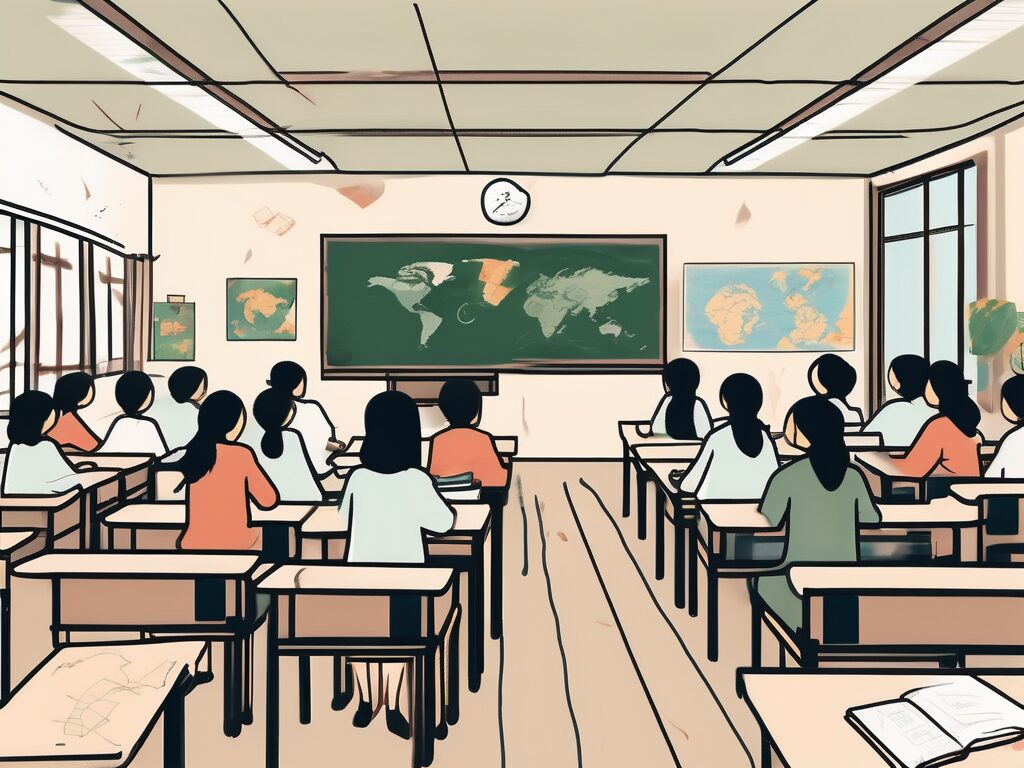Venturing into the world of teaching abroad can be an exciting and rewarding experience. However, it’s not without its challenges, particularly for international teachers in Vietnam. From language barriers to cultural differences, there are a number of hurdles that can make the experience a little less than smooth sailing. In this piece, we’ll delve into the top six common challenges that international teachers in Vietnam face, and provide some insight into how to navigate these issues.
1. Language Barriers
The first and perhaps most obvious challenge is the language barrier. While English is taught in most Vietnamese schools, it’s not the primary language spoken by the majority of the population. This can make everyday tasks like shopping, ordering food, and even asking for directions a bit of a struggle.
Furthermore, in the classroom, this language barrier can make teaching more difficult. While you may be teaching English, it’s often necessary to have some understanding of the students’ native language to effectively communicate certain concepts. This can be particularly challenging for teachers who have no prior experience with the Vietnamese language.
Overcoming the Language Barrier
Fortunately, there are ways to overcome this challenge. One of the most effective methods is to learn some basic Vietnamese. This not only helps with everyday tasks but also shows respect for the local culture. Additionally, using visual aids and gestures in the classroom can help bridge the language gap with your students.
2. Cultural Differences
Another common challenge for international teachers in Vietnam is navigating the cultural differences. From social norms to teaching styles, there are many aspects of Vietnamese culture that can be quite different from what you’re used to.
For instance, in Vietnamese classrooms, teachers are highly respected figures. This means that students are less likely to question or challenge their teachers, which can lead to a more passive learning environment than some international teachers are accustomed to.
Adapting to Cultural Differences
Understanding and respecting these cultural differences is key to a successful teaching experience in Vietnam. This involves doing some research before you arrive, and being open-minded and adaptable once you’re there. It’s also important to remember that these differences can provide valuable learning opportunities, both for you and your students.
3. Teaching Materials and Resources
Another challenge that many international teachers face in Vietnam is the lack of teaching materials and resources. Unlike in many Western countries, where teachers have access to a wealth of textbooks, online resources, and teaching aids, in Vietnam, resources can be quite limited.
This can make lesson planning more difficult and time-consuming, as you may need to create many of your own teaching materials. Additionally, limited access to technology in some schools can also pose a challenge.
Maximising Available Resources
Despite these challenges, there are ways to make the most of the resources you do have. This might involve getting creative with your lesson plans, using everyday items as teaching aids, or even collaborating with other teachers to share resources. Additionally, there are many free online resources available that can be a huge help in lesson planning.
4. Classroom Management
Classroom management is another area where many international teachers in Vietnam face challenges. With large class sizes and a different approach to discipline, maintaining order in the classroom can be a struggle.
Furthermore, the language barrier can make classroom management even more difficult, as it can be harder to communicate expectations and enforce rules.
Effective Classroom Management Strategies
Despite these challenges, there are strategies that can help. One of the most effective is to establish clear rules and expectations from the start, and to be consistent in enforcing them. Additionally, using positive reinforcement to reward good behaviour can be a powerful tool in managing your classroom.
5. Homesickness
Finally, one of the most common challenges for any international teacher is dealing with homesickness. Being far away from family and friends, and in a completely different culture, can be tough. This can be particularly challenging during holidays and special occasions when you might be used to being with loved ones.
Combating Homesickness
While homesickness is a common challenge, there are ways to combat it. Keeping in regular contact with loved ones back home, making new friends in Vietnam, and immersing yourself in the local culture can all help to ease feelings of homesickness. Additionally, taking care of your physical health through regular exercise and a balanced diet can also help to improve your mental wellbeing.
6. Visa and Work Permit Issues
Last but not least, navigating the visa and work permit process can be a challenge for many international teachers in Vietnam. The process can be complex and time-consuming, and the requirements can change frequently.
Navigating Visa and Work Permit Issues
One of the best ways to navigate this challenge is to work with a reputable recruitment agency or school that can guide you through the process. It’s also important to stay up-to-date with the latest requirements and to start the process well in advance of your planned arrival date.
In conclusion, while teaching in Vietnam can present a number of challenges, with the right preparation and mindset, these can be overcome. The experience of teaching abroad can be incredibly rewarding, providing a unique opportunity to immerse yourself in a new culture, make a difference in the lives of your students, and grow both personally and professionally.
Transform Your Teaching Career with IPGCE
Overcoming the challenges of teaching in Vietnam is just the beginning. If you’re ready to elevate your credentials, unlock career progression, and connect with a global network of educators, IPGCE is your next step. Our International Postgraduate Certificate in Education is designed to enhance your qualifications, increase your chances of securing international teaching positions, and support your professional development. With IPGCE, you’ll be 65% more adaptable to global education systems and see a significant boost in your career growth. Don’t let inadequate credentials or isolation hold you back. Join the UK’s #1 Teacher Training Course today and start shaping the future of education.

